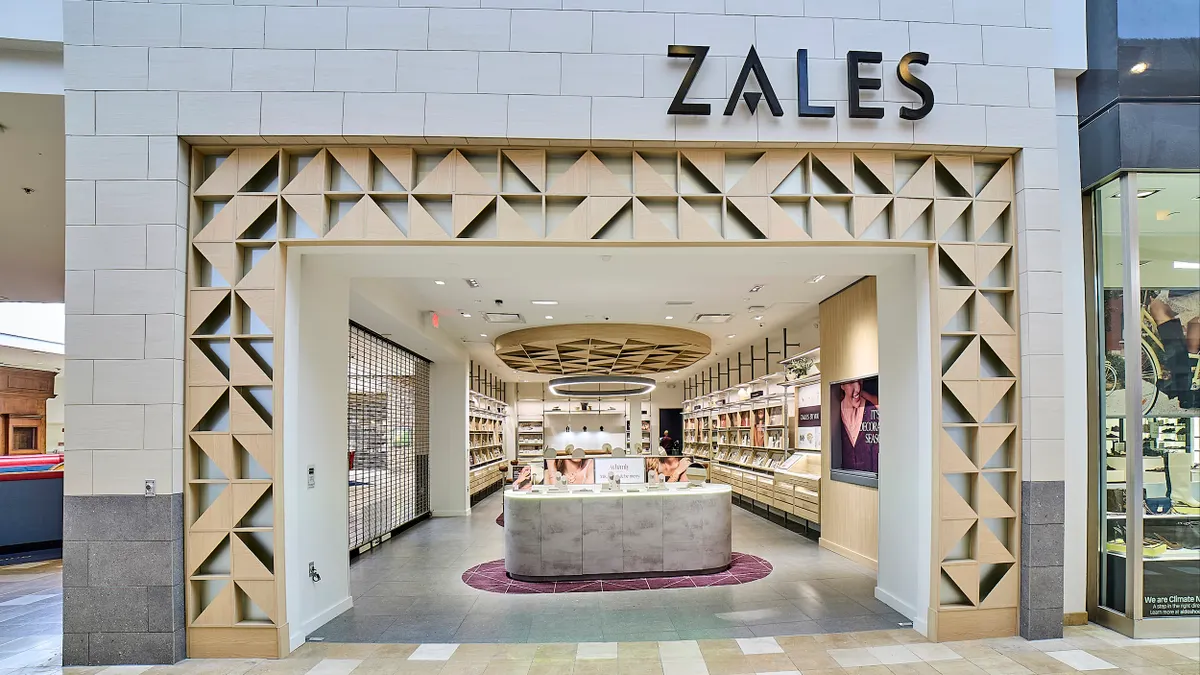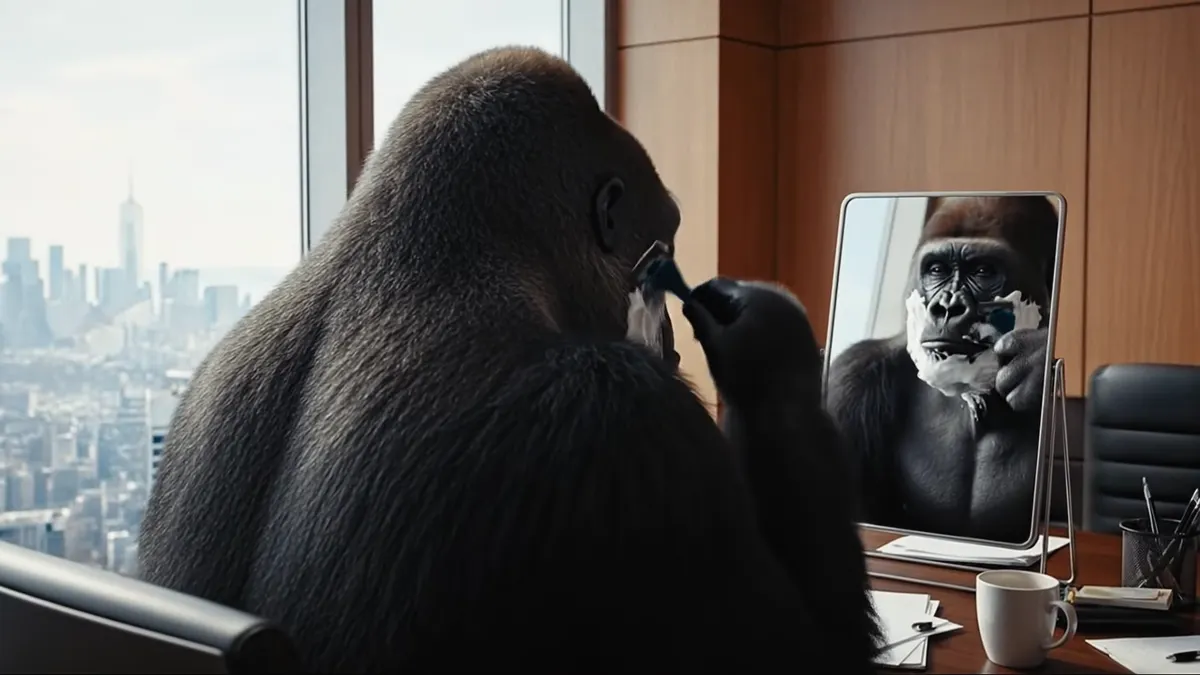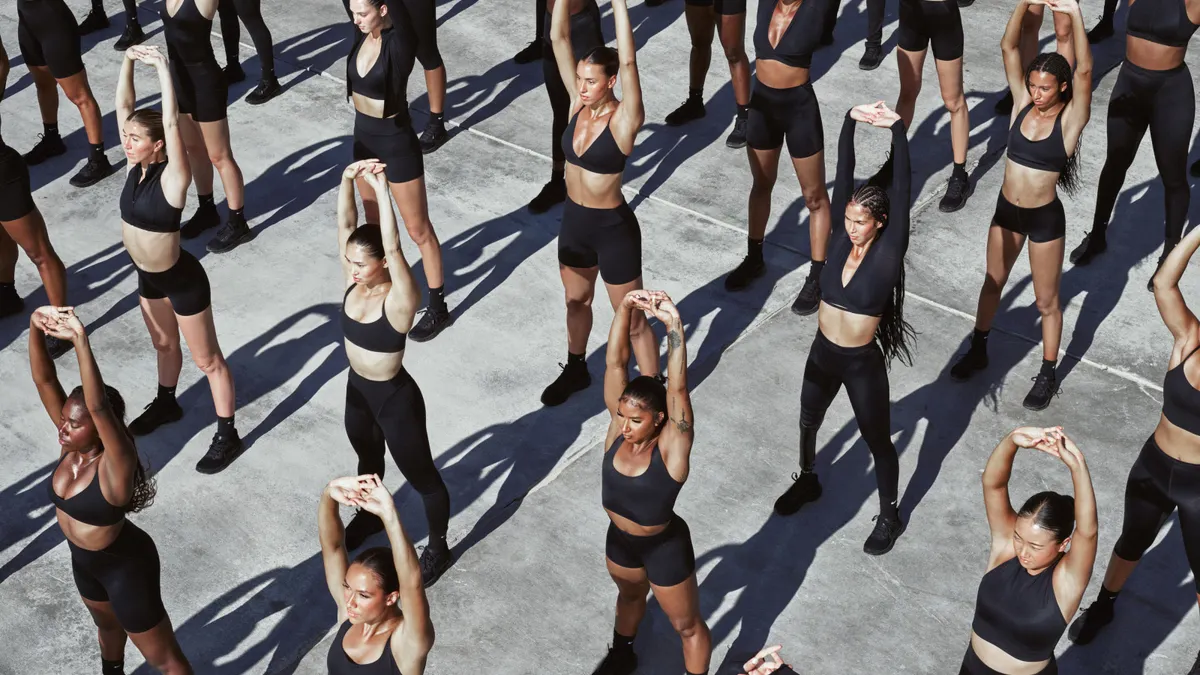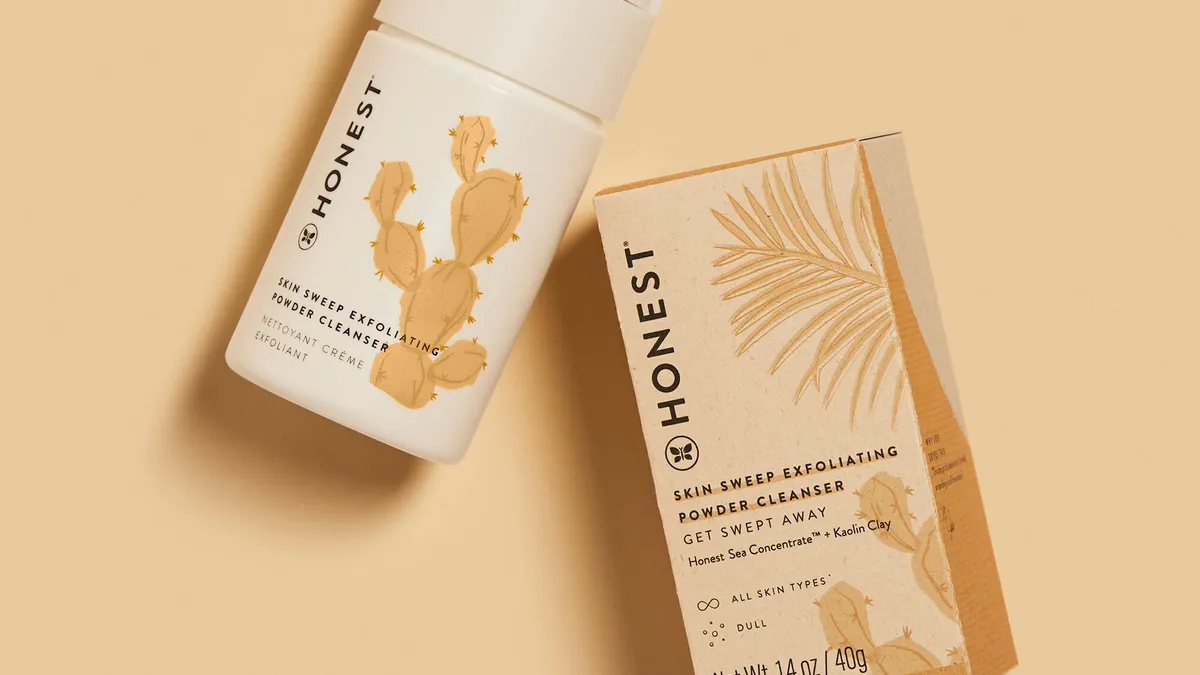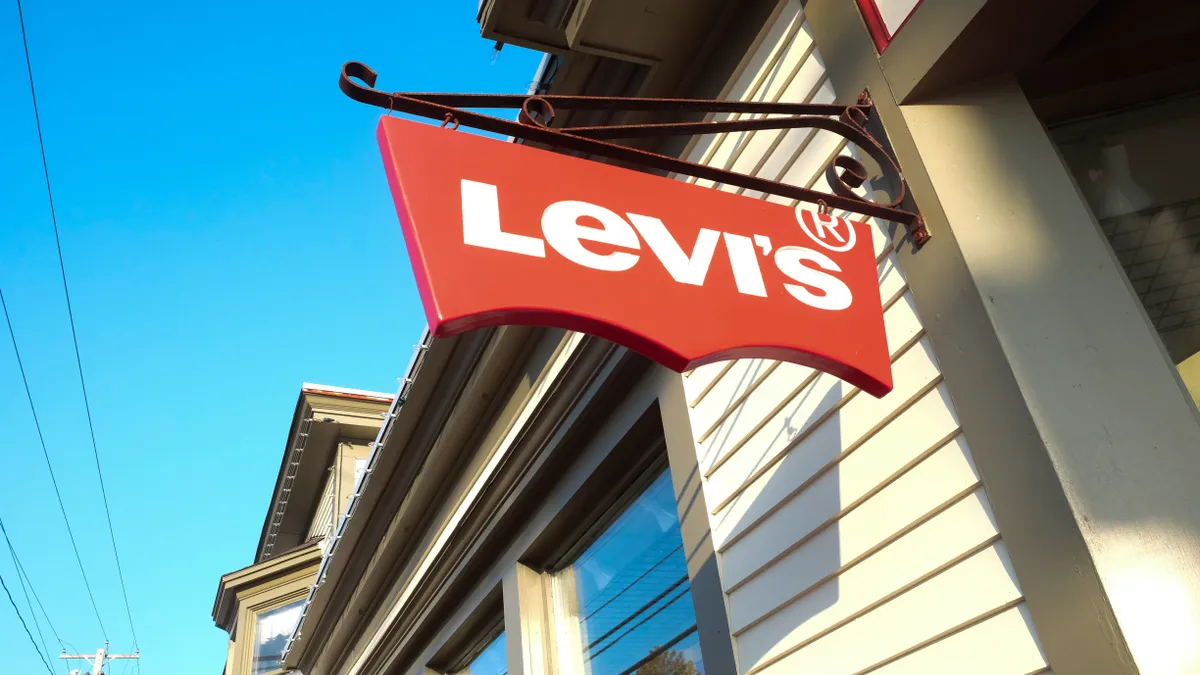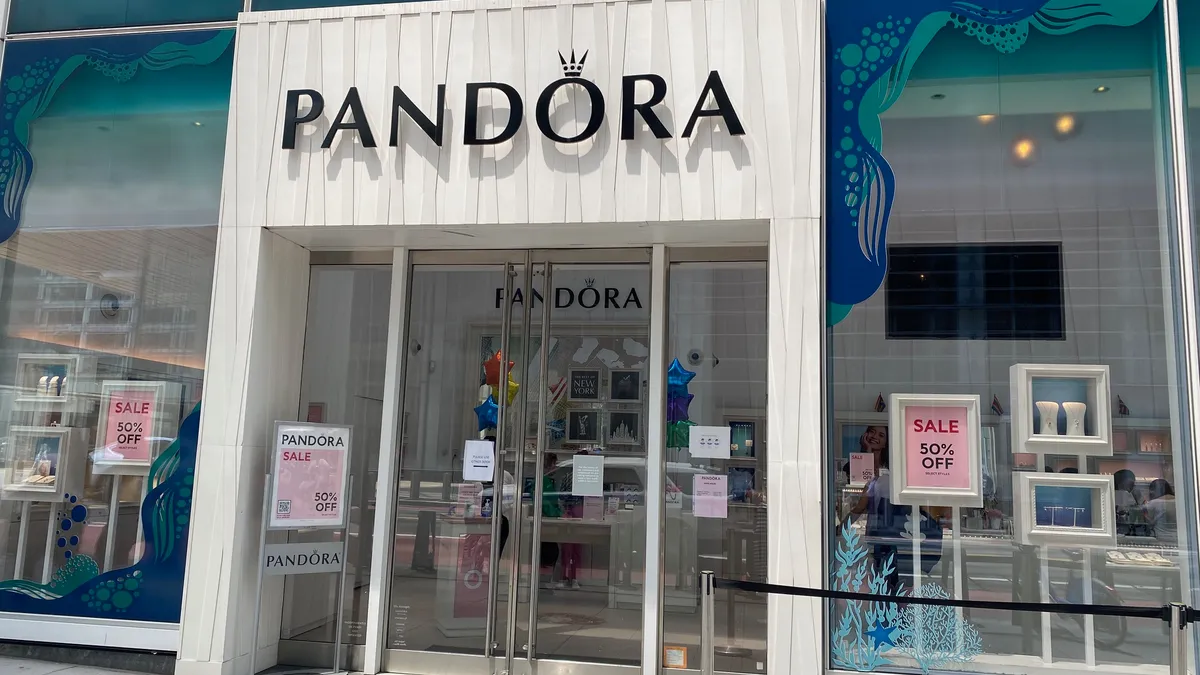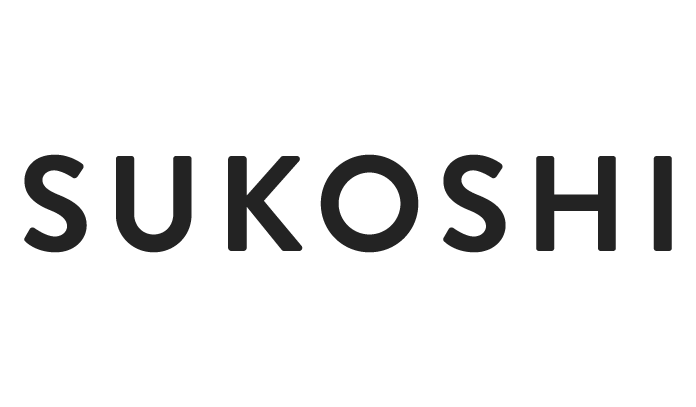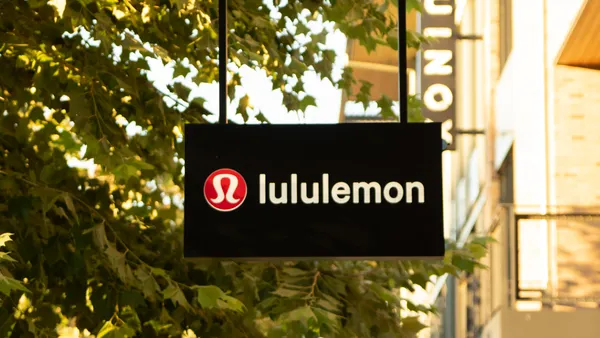Farfetch on Wednesday stomped through the luxury streetwear world with the announcement that it's buying sneaker resale marketplace Stadium Goods, (which the upscale fashion platform has featured on its own marketplace since April), for $250 million in cash and Farfetch shares.
The news comes amid some indication that sneaker sales are slowing, even in the exclusive segment of rarities and collectibles that is Stadium Goods' specialty. But José Neves, CEO and founder of Farfetch, which rocked its initial public offering in London in September, said the relationship has offered up synergies in just a few months and with very limited inventory.
"It made it clear to me that we should invest in the secondary market," Neves told Retail Dive in a phone interview on Wednesday. "I was absolutely impressed with what an amazing brand that these guys have built in a short three years, the community that they've built, you see the engagement, the way that they create content. It's something very special, very unique."
The shoe drops
Since its founding in 2015, Stadium Goods has staked out territory in the luxury market, so the deal is "a good fit" considering Farfetch's digital dominance in the same space, according to Erich Joachimsthaler, Founder and CEO of brand consultancy Vivaldi, which works with the likes of Adidas and Reebok.
"Sneaker resale and collectibles is not scalable enough for Farfetch now that Farfetch is a public company," he told Retail Dive in an email. "Deals like Stadium Goods are scalable and Neves, who started in the shoe design business, knows very well the sneaker business. What I don't understand is why it needs to acquire the whole of Stadium Goods. There is an investment thesis that I don't know about."
One answer to that may be that the deal "expands Farfetch beyond a marketplace for retailers to sell designer goods," according to Matt Powell, NPD group vice president and senior industry advisor of sports. "Stadium Goods is a marketplace for individual resellers," he told Retail Dive in an email. "Using Stadium Goods' platform, Farfetch can expand into other peer to peer categories."
The premium sportswear market was worth $70 billion in 2017, the companies said in their release. While Stadium Goods won't say whether it is profitable or give out its customer acquisition numbers, the company told Retail Dive that it expects 2018 year-over-year sales growth to reach 125%. The startup runs one store, in New York City, and also sells through Nordstrom's men's store there. Although there are no plans for further brick-and-mortar expansion, the retailer values the "storytelling" opportunities and revenue their physical location generates, according to Stadium Goods Co-Founder and Co-CEO John McPheters.
Is the rack too full?
Another open question is the market's capacity, however. "Truly limited products are selling well," Powell said. "But the mass releases by Nike and Adidas have not sold well."
Fashion sneakers accounted for half of the fashion footwear market's growth this year, according to other NPD research, but that, too, may be reaching a limit. "I expect this category to remain very important through holiday," a November blog post from Beth Goldstein, NPD executive director and footwear analyst, read. "But, its growth rate slowed in Q3, and heading into holiday boots seem primed to regain some share."
Such vagaries also show up in pricing. Even Stadium Goods and rival high-end sneaker marketplace Flight Club in recent days marked down Adidas Yeezy releases some 15%-20%, for example, a sign of over-saturation, according to Powell.
But the secondary market that is Stadium Goods' focus and now part of Farfetch's strategy has the potential to lift the primary market, too, Neves said. That's a position apparently not shared by Chanel, in light of its recent lawsuit against luxury resale site The RealReal.
"The more and more I speak to these CEOs and these brands I hear that, if their products have value in the secondary market and are being sold at higher prices than the primary market, it brings the primary market up," he told Retail Dive "They need the secondary market [to be run] in the right way. Pre-consigned, pre-authenticated products that can be sold with certainty to the customer. It absolutely protects the primary market, it creates a flywheel."
A good fit
Beyond that, however, Stadium Goods' founders see opportunity throughout the spectrum of styles and markets that its Farfetch ownership will only facilitate.
"That's partially due to the market being flooded with certain styles. With us it doesn't really matter," Co-Founder and Co-CEO Jed Stiller, in a phone interview with Retail Dive, said of the Yeezy and other markdowns. "The mechanics of the market is nothing we're worried about. We're winning in both scenarios."
What's key, according to McPheters, is that Stadium Goods has both a pipeline and the authentication system to bring out the sought-after rarities to monied sneakerheads. "We're very much a microcosm of what's going on in the market," he told Retail Dive in a phone interview. "We're always going to have those items that are impossible to find at retail."
Farfetch will also expand Stadium Goods' reach to markets like China and elsewhere, where demand among sneakerheads varies, he noted. "Providing those products internationally [through Farfetch] is also a massive opportunity," McPheters said. "Just because something is available in the US doesn't mean it's available in China or any of the other markets that Farfetch reaches."
In fact, Chinese millennials "are particularly fond of triple-digit luxury skincare and haute designer handbags and sneakers," according to a survey of 6,126 of those consumers by Chinese shopping site Dealmoon.com emailed to Retail Dive.
Other observers, like Vivaldi's Joachimsthaler and David Fischer, Founder and CEO of sneaker-and-streetwear fashion media company Highsnobiety, simply trust Neves' instincts. "For the sneaker and streetwear industry, this acquisition is further confirmation and validation for our positioning and shows that the market is here to stay," Fischer told Retail Dive in an email. "Farfetch just bet 250 million USD on it."







